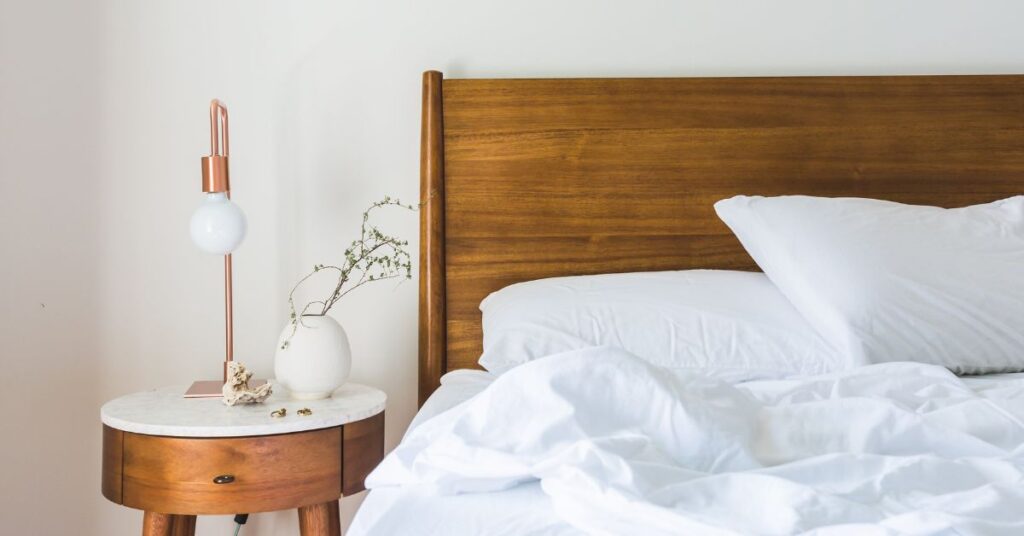By: Thomas Cheeseman
Sleep hygiene is a term that I hear thrown around regularly. But what is sleep hygiene, and what are four elements that support sleep?
Sleep hygiene refers to good sleep practices that protect sleep and support overall nighttime rest. There are a variety of tools that can support your sleep — these tips are just some examples that can support you in your sleep wellbeing.
Four Sleep Hygiene Tips that support sleep:
1. Keeping your bed for sleep
Your bed should be a place your body associates with rest and sleep, not with wakeful activities. If you’re watching TV, scrolling your phone, or even studying in bed, your brain stops linking it to sleep. Over time, try reserving your bed for sleep.
2. Have a routine
Having a consistent routine signals to your body that it’s time to get ready to sleep. Going to bed and waking up at the same time each day helps regulate your internal body clock. A familiar evening ritual, like reading or a warm shower, can prepare your mind and body for sleep.
3. Stop eating before bed
Eating late at night can activate your digestive system and make it harder for your body to relax. Heavy or rich foods especially can disrupt your ability to fall or stay asleep. Try to have your last meal or snack at least an hour before you go to bed.
4. Avoid (unnecessary) drug intake
Some substances, like caffeine, nicotine, or alcohol, can interfere with your sleep cycle. Additionally, medications and supplements can impact sleep, depending on when they’re taken. It’s helpful to review what you’re consuming in the hours leading up to sleep, perhaps with help from your GP, and consider anything that isn’t essential.
The Role of Acceptance
I used to love youth camps — except for one thing, I couldn’t get to sleep. I would lie down, be tired, and then think about how I couldn’t get to sleep on youth camps. I would blame the snoring of a friend, the discomfort of the bed, the light from the bathroom… but I couldn’t seem to get my thoughts to focus on anything other than trying to get to sleep.
After a few camps, I decided to accept that I wouldn’t get a good sleep at youth camps. I put my earphones in, focused on the music and accepted that I wasn’t going to sleep well that night. Somehow, I fell asleep much earlier.
If sleep hygiene practical tips don’t seem to support sleep for you; consider the worry and anxiety that may be keeping you awake.
Article supplied with thanks to The Centre for Effective Living.
Feature image: Canva





